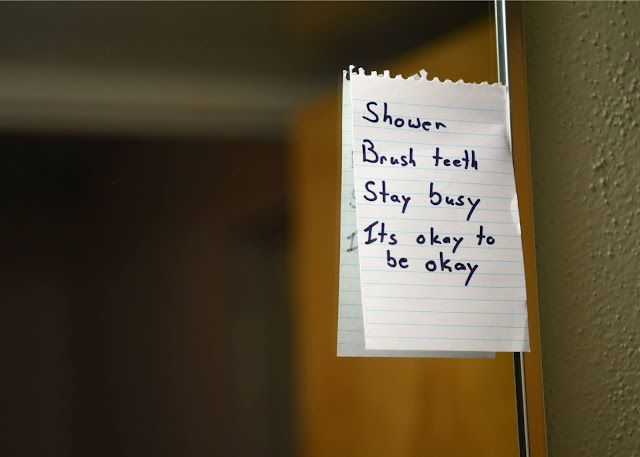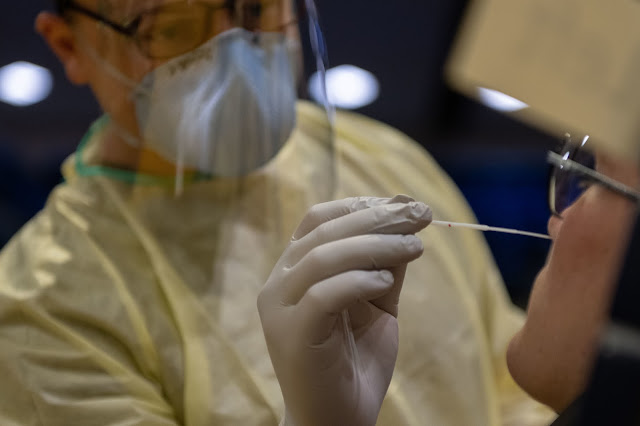17 Tips to Enhance Healthcare Worker Well-Being and Sustainment During COVID-19
By CAPT Joshua C. Morganstein, M.D.
The COVID health crisis presents exceptional challenges to doctors and healthcare workers who are tirelessly working daily to ensure our health and safety. Often, they have to deal with the scope of what the virus can do, handle the effects and problems of mandatory lockdown and quarantining, manage social distancing, engage in complex problems, and simply deal with the uncertainty of everything in the midst of a pandemic. It strains even the most well-prepared of us.
Also, doctors and healthcare workers face additional hurdles that create an unprecedented strain physically, mentally, and emotionally, such as having to adjust and readjust to a constant crisis level of care; having to work with limited resources and supplies; experiencing fear about personal safety while on duty; feeling helpless as infected patients struggle with being sick and dying alone; being constantly exposed to infected patients and having fears about bringing COVID home to family and friends; and adapting continually to changing procedures and protocols.
These issues can often manifest as insomnia; a reduced sense of safety, anger, and resentment; work-life imbalance; family and work conflict; and increased substance use to cope with difficult feelings. It’s important to ensure the well-being of our doctors and healthcare workers. What’s needed are necessary interventions, by healthcare workers as well as those who lead them, to enhance their well-being and functioning. Leaders exist at all levels, including team leaders, service chiefs, department heads, etc. Healthcare leaders and frontline healthcare workers can use the essential elements of psychological first aid to enhance a sense of safety, calm, social connectedness, self-efficacy, and hope throughout this crisis.
 |
| A note containing an Airman's daily schedule is taped to the mirror on Goodfellow Air Force Base, Texas, April 28, 2020. (U.S. Air Force photo by Airman 1st Class Ethan Sherwood) |
In the work environment, leaders can use the following nine actions to enhance healthcare worker well-being and sustainment:
- Be present
- Communicate effectively
- Ensure personnel have needed equipment and proper training
- Encourage self-care among staff members and model this behavior for others
- Normalize reactions―discuss challenges and stress; encourage staff to share
- Provide helping resources when needed
- Address grief―acknowledge pain and accept that grief can trigger unexpected emotions/reactions
- Have a growth mindset―inspire staff to thrive on challenges and stretch existing abilities as much as they are able
- Honor service―recognize colleagues for their daily dedication, commitment, courage, and hard work whenever possible
- Meet your basic needs―remember to eat, rest, and hydrate often
- Get a “battle buddy”―peer support is an important buffer against stressors; doing and receiving check-ins keeps us connected and reminds us that we can help others
- Take breaks to help de-stress, recharge, and reset
- Stay connected to help reduce feelings of isolation
- Stay updated on current policies and procedures
- Do self-check ins―make sure to keep tabs on how you’re feeling and talk to someone you trust if you need support
- Speak up―your voice and other voices matter during these trying times
- Look to the future―there will be life on the other side of COVID, and everyone has a role to play
COVID-19 will be a marathon, not a sprint. The actions of healthcare workers and leadership play a critical role in the sustainment of the healthcare workforce and our nation’s ability to maintain an ongoing response to this global pandemic.
 |
| A Naval Health Clinic Annapolis hospital corpsman administers the COVID-19 test. (U.S. Navy photo by Mass Communication 2nd Class Dana D. Legg) |

![Army critical care nurses work alongside hospital medical staff to provide care to a COVID-19 patient. Army nurses supported the city’s coronavirus response. [Image credit: U.S. Army photo by Luis Deya] Army critical care nurses work alongside hospital medical staff to provide care to a COVID-19 patient. Army nurses supported the city’s coronavirus response. [Image credit: U.S. Army photo by Luis Deya]](https://1.bp.blogspot.com/-KFajFbXYBL0/XylNo4X_9MI/AAAAAAAAAjw/ElQzsBmBnlk4a134jDpmrw3bgsCMCwDLQCLcBGAsYHQ/w640-h427/Photo%2B2.jpg)



